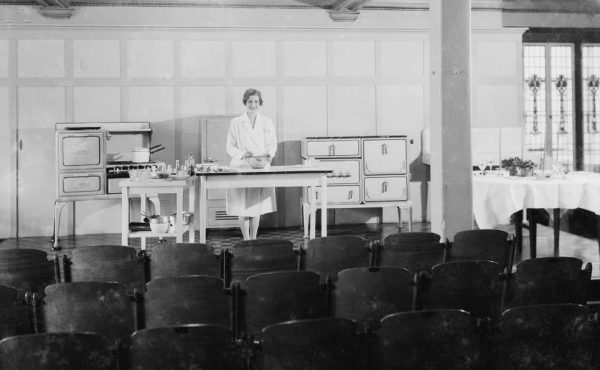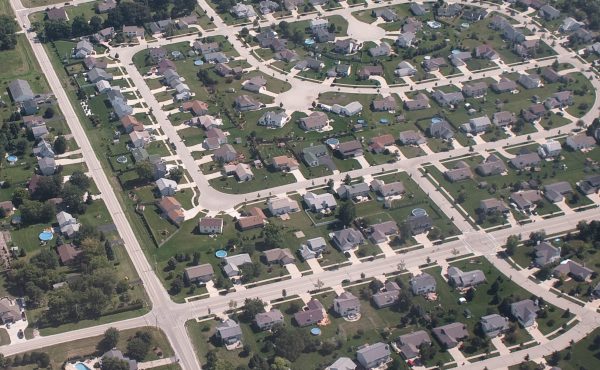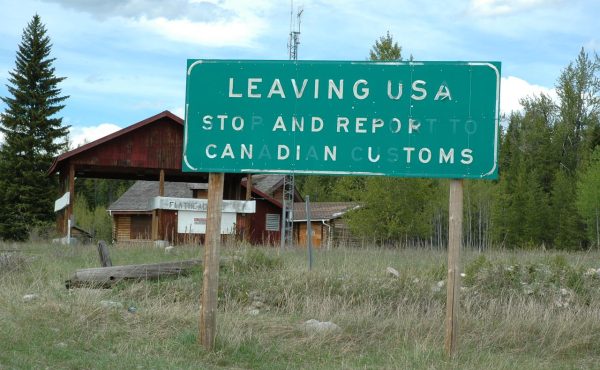
Will Bob Rae’s unexpected but sensible decision to withdraw from the Liberal leadership race pave the way for the second coming of Trudeau?
I certainly hope not.
Let me declare my biases: while I was a huge fan of Trudeau père, I am not enthusiastic about inherited political dynasties, of any ideological stripe. Talent often dissipates across the generational divide, replaced by opportunism and the conviction that being born on third base looks good on a resume.
Justin Trudeau, who got a gusty plug from The Globe and Mail’s Lawrence Martin a few days ago, may have a pugilistic streak, but his journey to the forefront of the Liberal caucus – which began, curiously, with the eloquent eulogy he gave at his father’s state funeral – is hardly a stirring accomplishment. And while he’s got that youthful swashbuckler thing about him, the promise he apparently brings is reminiscent of the hype that preceded Michael Ignatieff’s ill-fated coronation.
What’s in a name, you ask? Less than you’d think.
Stephen Harper made sure there’s not much bench strength in the Grit caucus. Dominic Leblanc, another political scion from Atlantic Canada, is sometimes mentioned, as is David McGuinty, brother of you-know-who, and Gerard Kennedy. Former Liberal justice minister Martin Cauchon, a savvy Chretien protégé who is safely ensconced as a rainmaker for Heenan Blaikie, is another possibility, and would fit with the party’s tradition of alternating anglo- and francophone leaders – assuming, of course, that such traditions mean anything at all in this day and age.
If I was a Liberal strategist attempting to think outside the box, I would be focusing on the one politician in this country who can, in my view, solve a great many of the party’s policy, positioning and organization problems: Calgary mayor Naheed Nenshi.
Nenshi is a tested leader who could present Canadian voters – especially those in large urban regions — with a stark counterpoint to Harper’s Conservatives, both in substance and style. And, what’s more, he is the only public figure I can think of who has a hope in hell of surmounting the corrosive resource-sector-fueled regionalism that has transformed federal politics into a zero-sum game.
Let’s start with the obvious: Nenshi reflects the face of 21st century Canada – diverse, well-educated, savvy about the ways of globalization and totally at ease with the youthful pluralism that increasingly characterizes Canada’s major urban centres, and therefore most of the country. He is smart, articulate, self-deprecating, and understands the fluid nature of engagement in the age of social media and Twitter. Indeed, his organizational skills in the run-up to the 2010 Calgary mayoral race were a spectacle to behold.
Where Harper and his Conservatives thrive at the politics of division, Nenshi is all about adding, multiplying and synthesizing. As the Calgary race demonstrated, Nenshi is a guy who viscerally understands how to build complex coalitions and then deliver on key democratic principles, such as transparency.
A few more points: he’s a socially progressive yet unapologetically pro-business politician from Western Canada who has figured out how to romance Calgary’s oil patch executives – a group not known for its love of progressives.
It also seems increasingly clear that Alberta is no longer in lock step with the prime minister’s brand of conservatism, as Alison Redford’s election suggested. Yet if the Liberals want to capitalize on this opening, they’re certainly not going to do it with a long distance phone card, much less a leader whose every utterance will remind the West about the indignities of Trudeau Sr.’s national energy policy.
More important, however, is that Nenshi represents an entirely different approach to politics and governance, and is well positioned to take advantage of the generalized discomfort with Harper’s MO. The Tories, after all, don’t do openness. They value tactical victories and heavy-handed message control over open-ended debate. And they display a breathtaking contempt for countervailing information, be it from StatsCan or government scientists or the criminal justice experts who have been stonewalled by Vic Toews and his Old Testament sentencing policies.
Lastly, Harper, during his tenure, has placed a massive bet on the resource sector as the key to Canada’s economic future, and has done so without seriously questioning the implications for Canada’s more urbanized sectors, not to mention the environment. Are we to become a country which coasts along by selling rocks and oil to the U.S. and China, and Timbits to one another?
I don’t remember ever having that particular debate.
Harper, for all his coldness and fiscal self-righteousness, gets a pass from Canadians because many voters believe he won’t blow the bank, even though the country’s monetary stability is mostly the handiwork of Mark Carney and the federal banking regulators and Paul Martin’s war on the deficit in the mid-1990s.
To date, the opposition parties have failed to convince most voters that Harper’s fiscal management is deeply risky because he’s putting all our eggs in the resources basket without any kind of hedging strategy. What’s more, it seems absurd that a modern, wealthy country should become so blinded by the allure of commodities and China’s industrial customers that the federal government is willing to dismantle generations of accepted environmental protections to ensure that we can remain price competitive with all those developing world nations and semi-failed states that have little else to trade but rocks, fibre and oil.
If anyone can challenge Harper by asserting the importance of developing a forward-looking, diversified urban economy based on innovation, it is Naheed Nenshi. He gets cities, and how they generate wealth. That’s the choice he offers.





18 comments
Interesting story. Nenshi would create a lot of problems for Harper (and others) by breaking the political mold (or mould) in so many ways. I would love to see this.
All those seats in rural Canada would never go to an urbanite Liberal.
Until we fix the under-representation of our cities, we’re stuck with someone who doesn’t reflect the new Canada.
Is Nenshi even remotely interests in federal politics, let alone running for the Liberals, let alone running for the *leadership* of the Liberal party?
John, do you have any information whatsoever about these questions, or is this article totally out of left field (which it appears to be on first glance)?
Btw I’m not disagreeing with your suggestion that he run, I’m just questioning why you’re putting this forward without any inside info about the chances if he’d consider running.
Does he even speak French? Might be a moot point if he doesn’t meet criteria number one.
Please read Frank McKenna’s article on pg A13 of today’s Globe and consider the opportunities that could result and that would encourage spinoff benefits right across the country. That would go a long way to silencing a lot of the regional bear baiting that is going on at the moment. I can’t really comment on Nenshi and his possible positive impact on the leadership of the Federal Liberals as he really is an unknown quantity at this time. Let’s give the man a full term as a large municipal mayor and judge him by his record rather than his current media generated persona. Just a thought.
@peter
I have no inside information, and Nenshi has said on several occasions that he’s got the job he really wants. But that doesn’t mean we can’t dream, speculate, work out possible scenarios, etc. 🙂
Lost of rural voters would go for an urbanite. Just because people live in rural areas doesn’t make them intrinsically anti-urban.
And anyway, cities are the nexus of cultural, political, and economic power in this country. The whole idea that urban areas are the downtrodden stepchildren of our political system is way overblown. There is a slight imbalance in representation, but it’s not as great as made out.
(Also, the “new Canada” thing is kinda bogus, when you consider that StatsCan counts a village of 1,000 people in the middle of nowhere to be an urban area, thereby greatly inflating that statistic about 80 percent of the country being “urban.” It’s more like 60 percent.)
Anyway, this is a neat perspective. Having said all that, we do need someone with a smart take on urban planning and infrastructure at the top level in Ottawa.
This makes so much sense it hurts. I’m not sure if he speaks French or not, but first of all he could learn (yes, he is that smart) and second I have the feeling that Quebec would like him so much that they wouldn’t even care.
I created a group in Facebook, Nenshi for PM.
https://www.facebook.com/groups/nenshi4pm/
You make a lot of good points. Since he was elected mayor, I have though that Nenshi would be an exciting option as a Liberal Leader. In some ways, he is more reminiscent of Trudeau in ’68 than Justin is: a young and articulate outsider with a fresh approach, from a region that is historically marginalized region but newly empowered.
I question your definition of him as a “tested leader” however. He is a rookie politician who has not even been mayor for two years. Sure he looks like a success now, but so do many politicians after a year and a half. He would have to be re-elected at least once and serve a term or two before I’d call him a “tested leader”. I presume that he has some accomplishments that he’d like to get under his belt before moving on to another job. By contrast, David Crombie was mayor for 6 years and councillor for another two before moving to the federal level, and even then he waited several years before running for party leadership (and losing).
Having said that, the Federal Liberals don’t necessarily have a better option, and becoming a national leader may be tempting opportunity for Mayor Nenshi, even if the Liberal crown ain’t what it used to be. Would be an interesting race. I wonder if he’s interested. It couldn’t hurt to ask…
Preamble: I’m saying this as someone who has voted Smitherman, NDP, and Green in the last 3 elections and wouldn’t be offended if I was described as a “Gerard Kennedy” Liberal.
I have no issue with Nenshi as a future leader of the Liberal Party and while it seems unlikely at the present, I could see myself voting for the Liberals if he was the leader. The problem is that the Liberal Party needs to show me that they’re rebuilding with new faces from the ground up. There was plenty of deadwood pushed aside in Toronto in the last Federal Election and of the remaining MPs only Bennett and Rae aren’t terrible. (Maybe Kirsty Duncan too? I don’t know much about her.) Karygiannis has been in office since 1988 and has done nothing aside from being anti-SSM and anti-abortion. OTOH, maybe Scarborough-Agincourt enjoys ineffective representation having elected Norm Kelly since 1994.
Nenshi would be a good start but the Liberal Party still screams out to me that they’re still stuck in the 1990s.
Gerard Kennedy didn’t want to switch to federal politics in 2006 either. Everything is possible.
I thought I read once though that he carried a Conservative card. Not that he couldn’t change. Or maybe I just dreamed it.
Conveniently enough, a Calgary Centre federal byelection is pending.
The reasons you gave for disliking JT seem weak to me, just because he has a famous dad doesn’t mean he isn’t up for the job. His strengths have been well documented, 136K twitter followers trouncing everyone save the PM, he is a fundraising machine and has a face made for TV. This editorial exemplifies how the Liberals are so bereft of constructive ideas these days that they can only suck the life out of the few remaining star candidates they have. Pity.
PS Why is endorsing our plentiful natural resources always equated to a zero sum game? Our harvesting oil has nothing to do with our success or lack thereof in other industries.
I think Nenshi is a very interesting mayor but the extrapolations being made for a guy not two years in office and who won an plurality in part due to a strong 3rd placed candidate seem risible.
Also – why must we persist in a system which frequently paints school trustees as “councillors in training”, councillors as “MPs in training” and now god help us mayors as “PMs in training”?? Calgary needs a strong urbanist mayor for the next few decades, not just until the current guy finds a better gig.
@Kyle “Gerard Kennedy didn’t want to switch to federal politics in 2006 either. Everything is possible.”
Yeah. What a genius move that turned out to be – and look how well Provincial education policy has gone since too. The guy who railed against the funding formula didn’t stick around to fix it.
No doubt, Nenshi would be a star candidate, but why would he want the job?
He’s a local politics geek who likes collaboration (that doesn’t translate well to federal politics). The Liberals are in disarray and keep looking for a leader to save them, when they likely need a stronger grassroots movement. And Nenshi has far greater impact as mayor of Calgary than he would as leader of the Liberals. So why take the risk?
I have information from good source that yes, he does speak French….but is he really intrested is another question….